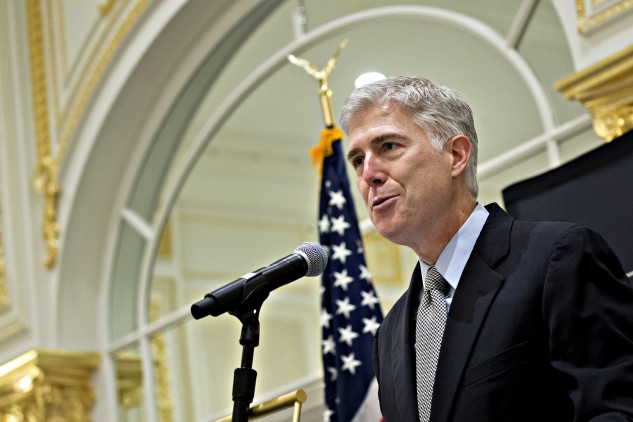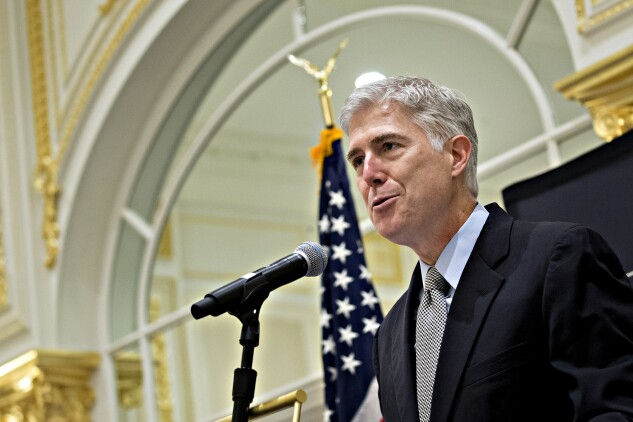
The legal impact of the U.S. Supreme Court’s year-old expansion of LGBT worker rights has stretched into a wide range of employment discrimination areas and driven attempts to push legal boundaries in education and health care.
More than 300 cases have cited to the high court’s decision in Bostock v. Clayton County, Ga., in the past year, according to Bloomberg Law’s BCITE analysis tool. These include litigation outside of the LGBT realm, with one of the more prominent issues focusing on how employees prove race, age, and other discrimination.
An ongoing lawsuit against
The ruling under Title VII of the 1964 Civil Rights Act also has been used to bolster arguments in favor of “intersectional” bias claims that involve two or more statuses protected by federal law, or brand new claims such as caste discrimination or immigration-status bias.
“The next question is, what is the effect on other areas of the law?” asked Todd Anten, a partner at Quinn Emanuel Urquhart & Sullivan LLP, who has represented companies that support LGBT workers. “How has Bostock had its tendrils in other places? There have been many.”
Title VII’s sex discrimination protections also parallel several other statutes, including in education and health care. The Biden administration has backed interpretations that would expand Bostock to these spheres. The ruling also could influence litigation against a wave of anti-transgender legislation in conservative states, attorneys and academics say.
“The Supreme Court decision put an end to litigation around who was covered under Title VII, but the areas that are open are about whether the definition of sex will carry over to other areas,” said Minna Kotkin, a law professor and director of Brooklyn Law School’s Employment Law Clinic.
Proving Discrimination
Justice
Gorsuch acknowledged that Congress allowed workers to meet a less stringent standard in Title VII discrimination cases by showing that a protected trait was one of several motivating factors leading to a firing, discipline, or other adverse employment action.
But he also discussed a stricter standard known as “but for” causation, which applies in Title VII retaliation cases, as well as bias claims under the Age Discrimination in Employment Act and other laws. This means workers must establish they wouldn’t have been fired without their employer’s bias.
“One of the under-appreciated features of the opinion is what the ‘but for’ causation standard means,” said Sandra Sperino, a University of Cincinnati law professor who’s written extensively on discrimination law. “I think courts will continue to look at the case for clarification of other statutes.”
Some lower courts have interpreted “but for” to mean discrimination must be the sole cause of an adverse act. Gorsuch noted that there can be multiple causes under but-for causation, Sperino said, adding that a year is too early to see the full effect reflected in opinions.
Two appeals courts, however, declined to extend Bostock’s “but-for causation” analysis outside the context of Title VII. The U.S. Court of Appeals for the Sixth Circuit earlier this year ruled that an older bank teller needed to prove that her age was the sole cause of her termination.
In a Voting Rights Act case in the Second Circuit, the court rejected the causation standard, saying that Congress’ intent was clear that it shouldn’t require a showing of racial animus to prove that a policy disenfranchised minority voters.
“So far we have seen very few decisions, not as many as we’d like, to reassess when you prove your case ‘but for’ your sex,” said Greg Nevins, senior counsel with Lambda Legal, an LGBT civil rights organization. “That has the potential to simplify employment law and get rid of a bunch of hurdles and tests for workers.”
Gorsuch also discussed intersectional or “sex-plus” claims in the court’s opinion without expressly using those terms. Instead, he raised hypothetical situations, including an employment policy calling for the firing of female workers who are fans of the Yankees.
The Tenth Circuit used this framing in ruling that older men and women can sue their employers based on a combination of sex and age. In a recent paper from the American Bar Association on the impact of Bostock, academics and attorneys predicted that this type of case could be useful for discrimination cases brought by caregivers.
State Law Challenges
In the wake of Bostock, Nevins of Lambda Legal said several federal appeals courts have ruled in favor of transgender plaintiffs who were raising claims of sex discrimination in health care, schools, and sports—all outside of the employment realm.
These have come as several conservative state legislatures passed laws prohibiting transgender students from competing on sports teams that align with their gender identity, targeting bathroom policies at schools, and limiting medical benefits.
“There are important ramifications for transgender and gay individuals beyond the Title VII context,” said Cathryn Oakley, the Human Rights Campaign’s state legislative director and senior counsel.
HRC and the American Civil Liberties Union have threatened to file or already have filed lawsuits against what they view as anti-transgender legislation.
Bostock could play a role in this litigation to support arguments that LGBT worker protections can extend to students. It’ll depend on the specific legal challenge, Nevins said.
Even if the ruling isn’t cited, it may still be influential, said Brooklyn Law School’s Kotkin. Bostock has parallels to cases outside of the workplace context involving transgender students or individuals, she said.
“It’s the most obvious argument moving forward in areas where transgender students are excluded,” she said.
